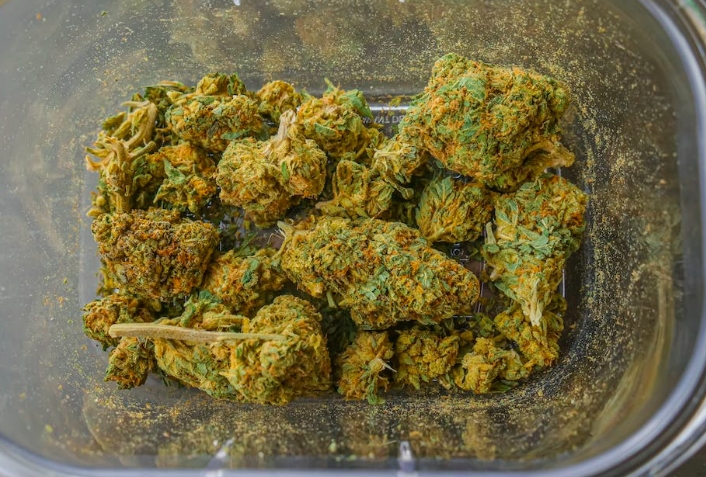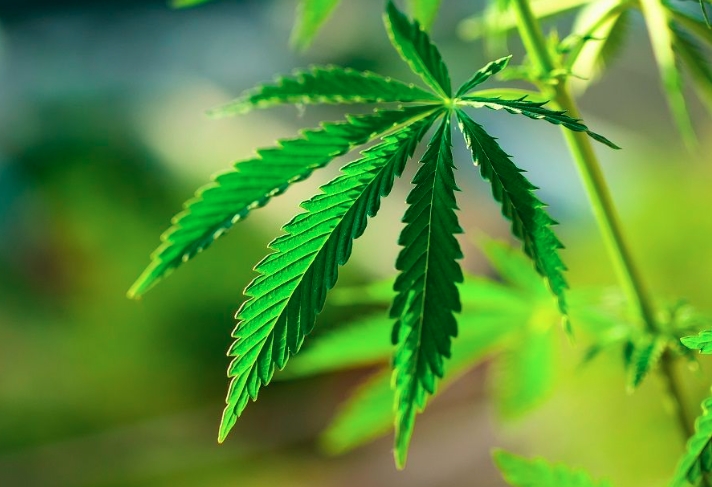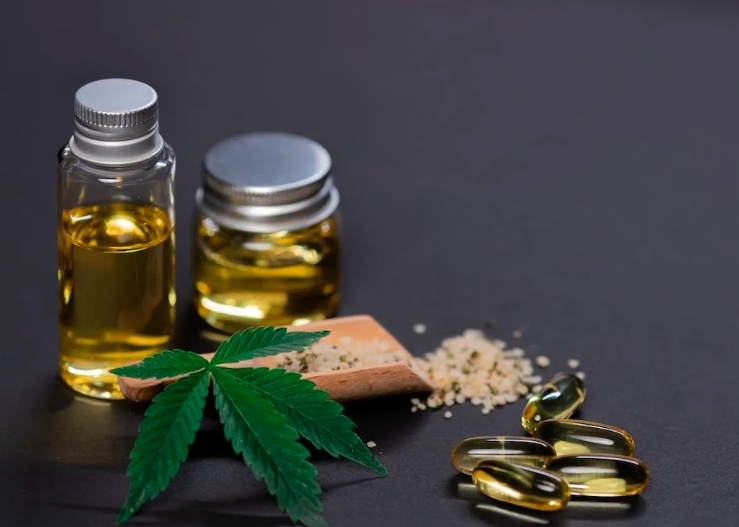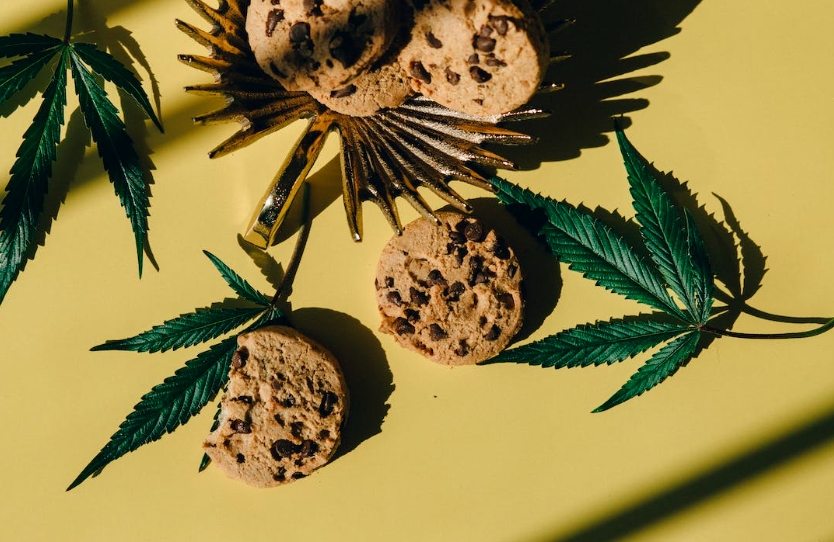Recreational cannabis is a plant that has been used for centuries for its many medicinal benefits. The plant has been used in traditional medicine for thousands of years and its use has recently been legalized in many states. Recreational cannabis is the term used to describe marijuana and other cannabis products that are used for recreational purposes. It is important to note that recreational cannabis is not the same as medical marijuana, which is used to treat certain medical conditions.
Recreational cannabis is gaining popularity among adults of all ages, with many seeking out its recreational use as a way to unwind, relax and enjoy the effects of the plant. There are many different forms of recreational cannabis, including dried flower, edibles, concentrates and tinctures. Each form of recreational cannabis offers its own unique effects and benefits. For those who are new to recreational cannabis, it is important to understand the different forms and their effects before experimenting with the plant. There are also many different ways to consume recreational cannabis, such as smoking, vaping and edibles.
Recreational cannabis can be an enjoyable and rewarding experience, but it is important to understand the potential risks associated with the plant. It is important to remember that recreational cannabis is still a relatively new industry and there is still much research to be done on the potential short and long-term effects of the plant. To ensure a safe and enjoyable experience with recreational cannabis, it is important to educate yourself on the various forms, consumption methods and potential risks associated with the plant.

Legality of Recreational Cannabis
Overview of Countries/States that have Legalized Recreational Cannabis Recreational cannabis is legal in some countries and states around the world, including Uruguay, Canada, the Netherlands, South Africa, and the United States. In the United States, recreational cannabis is legal in eleven states, including California, Colorado, Maine, Massachusetts, Oregon, and Washington. This number is likely to increase as more states begin to legalize the recreational use of cannabis. In addition, many countries are considering the legalization of recreational cannabis.
Explanation of Legal Age Requirements for Recreational Cannabis The legal age for recreational cannabis varies by location. In Canada, for example, the legal age for recreational cannabis is 18 or 19, depending on the province. In the United States, the legal age for recreational cannabis is 21, although the legal age varies from state to state. In addition, most countries and states have restrictions on where and how cannabis can be purchased and consumed. For example, in Canada, cannabis can only be purchased from licensed cannabis retailers, and smoking and vaping are prohibited in public spaces.
Benefits
• Legalization of recreational cannabis can provide a number of economic and social benefits, including increased tax revenue, job creation, and reduced criminal activity.
• Legalization of recreational cannabis can also improve public health by providing access to safe, lab-tested products and reducing access to illegal cannabis.
• Lastly, legalization of recreational cannabis can reduce stigma and encourage more open dialogue about the potential benefits of cannabis use.
Tips
• Be aware of the legal age requirements for recreational cannabis in your area and obey the law.
• Follow local rules and regulations regarding the purchasing and consumption of cannabis.
• Be aware of the potential health risks associated with cannabis use, including impaired judgment and coordination.
• Always use cannabis responsibly and avoid driving or operating machinery while under the influence.
• Consider talking to your healthcare provider if you have any questions or concerns about using cannabis.
Types of Recreational Cannabis
The three main types of recreational cannabis are Indica, Sativa and Hybrid strains. Each type of recreational cannabis has its own unique characteristics that make it unlike the others.
Indica: Indica cannabis strains are known for their calming, sedative-like effects. They are usually used to ease stress and anxiety, and can be used to help with insomnia. The effects of Indica are usually felt more in the body than in the mind.
Sativa: Sativa cannabis strains are known for their energizing, uplifting effects. They are usually used to help with focus and creativity, and can be used to help increase productivity. The effects of Sativa are usually felt more in the mind than in the body.
Hybrid: Hybrid cannabis strains are a combination of both Indica and Sativa. They can have effects of both Indica and Sativa, depending on the ratio of Indica to Sativa in the strain. Hybrid cannabis strains are popular because they offer a varied range of effects and can be used for a variety of purposes.
THC vs. CBD
THC (tetrahydrocannabinol) and CBD (cannabidiol) are the two main active compounds found in cannabis. THC is the compound responsible for the psychoactive effects of cannabis, while CBD does not produce any psychoactive effects. THC is the most commonly found compound in recreational cannabis, while CBD is more commonly found in medical cannabis.
Benefits of Recreational Cannabis
• Can help reduce stress and anxiety
• Can help enhance creativity and focus
• Can help with pain relief
• Can help with relaxation
• Can help with insomnia
Tips for Using Recreational Cannabis
• Start with a low dosage and wait to feel the effects before increasing it • Choose a strain based on the desired effect
• Be aware of any potential side effects
• Avoid operating machinery or driving after consuming cannabis • Keep cannabis stored in a safe, secure place
• Be mindful of your environment and the people around you when consuming cannabis
Methods of Consumption
Smoking
Smoking is one of the most popular methods of consuming cannabis. It is one of the quickest and most efficient ways of getting the effects of cannabis, as the user will feel the effects within minutes. Smoking involves heating up the cannabis flower, creating an inhalable smoke that is then inhaled through a pipe or a joint. Smoking is the most straightforward method of consuming cannabis, as there are few steps involved. However, it is important to note that smoking cannabis can be harsh on the lungs and can cause coughing, so it’s important to go slow and use a small amount of cannabis at first.
Vaporizing
Vaporizing is a method of consuming cannabis that has become more popular in recent years. This method involves heating up the cannabis flower or concentrate to a temperature that is lower than what is required for combustion. This allows the user to inhale the vapor created without having to inhale the smoke produced by burning the cannabis. Vaporizing is a great option for those who want to avoid the harshness of smoking and experience the effects of cannabis more quickly.
Edibles
Edibles are a popular method of consuming cannabis, as they provide a longer-lasting and more potent effect than smoking. Edibles can be made with either cannabis flower or concentrate, and they come in many forms, from baked goods to candy to beverages. Edibles are a great way to experience the effects of cannabis in a more subtle way, as the effects can take up to an hour or more to kick in.
Tinctures
Tinctures are a method of consuming cannabis that is becoming more popular. Tinctures are made by infusing cannabis concentrate into a liquid solution, usually an oil or alcohol. This liquid can then be administered sublingually (under the tongue) or added to food or drinks. Tinctures are a great way to experience the effects of cannabis in a more subtle way, as the effects can take up to an hour or more to kick in.
Topicals
Topicals are a popular method of consuming cannabis, as they provide a localized effect without any psychoactive effects. Topicals are made by infusing cannabis concentrate into a variety of products, from lotions and creams to balms and salves. Topicals are great for those who want to experience the therapeutic benefits of cannabis without the high.
Benefits of Consumption Methods:
Smoking:
• Quickest and most efficient method for feeling the effects of cannabis • Straightforward and easy to use
• Can be harsh on the lungs, so it’s important to go slow and use a small amount of cannabis at first Vaporizing:
• Allows the user to inhale the vapor created without having to inhale the smoke • Quicker and less harsh than smoking
• Great option for those who want to avoid the harshness of smoking Edibles:
• Provides a longer-lasting and more potent effect than smoking • Comes in many forms, from baked goods to candy to beverages
• Subtler effects than smoking
Tinctures:
• Can be administered sublingually or added to food or drinks
• Subtler effects than smoking
• Great way to experience effects of cannabis in a more subtle way Topicals:
• Localized effect without any psychoactive effects
• Made with a variety of products, from lotions and creams to balms and salves
• Great for those who want to experience the therapeutic benefits of cannabis without the high
Effects of Recreational Cannabis
Short-term Effects of Recreational Cannabis
The short-term effects of recreational cannabis can vary depending on the amount of cannabis used, the quality of the cannabis, and the method of consumption. Generally, the most common effects experienced are euphoria, relaxation, increased appetite, an altered sense of time, and impaired coordination and judgment. Cannabis can also cause anxiety, paranoia, and hallucinations in higher doses. Other short-term effects include dry mouth, red eyes, racing heart, and increased appetite.
Long-term Effects of Recreational Cannabis
The long-term effects of recreational cannabis can vary depending on the amount of cannabis used and how long it is used for. Generally, long-term cannabis use can lead to an increased risk of addiction, impaired memory and learning, impaired respiratory and cardiovascular functions, and an increased risk of certain types of cancer. Other long-term effects can include decreased motivation, depression, anxiety, and lower IQ scores.
Side Effects of Recreational Cannabis
The side effects of recreational cannabis use can vary depending on the amount of cannabis used and how it is consumed. Generally, side effects of cannabis use include dizziness, drowsiness, nausea, increased heart rate, dry mouth, and increased appetite. Other side effects can include impaired coordination and judgment, anxiety, paranoia, hallucinations, and respiratory issues. It is important to note that the side effects of recreational cannabis can be more severe in those who have not used cannabis before.
Dosage and Tolerance
Dosage Guidelines
Dosage is the amount of a drug that a person takes at one time, and it is very important to understand the recommended dosage of any medication or supplement. It is generally recommended to start with the lowest possible dosage and gradually increase it until the desired effect is achieved. It is important to consult a doctor before taking any supplement or medication and to ensure that the dosage is appropriate for your health.
How to Determine Personal Tolerance
Personal tolerance differs from person to person based on a variety of factors such as age, weight, health, and other medical conditions. It is important to discuss any medications or supplements with your doctor and to follow their guidelines to determine your personal tolerance. It is also important to be aware of any side effects that you may experience and to adjust the dosage accordingly. In some cases, it may be necessary to reduce the dosage or to discontinue use altogether if the side effects are too severe.
Purchasing Recreational Cannabis
When it comes to purchasing recreational cannabis, there are two main options: dispensaries and online retailers. Dispensaries are physical stores that typically offer a wide array of different cannabis products, from flowers to edibles to concentrates. Online retailers usually offer a much more limited selection of cannabis products, although the options are typically more varied than what’s offered in physical stores.
Types of Products Available
Cannabis products come in a variety of forms, ranging from flowers and edibles to concentrates and topicals. Flowers are the most common form of cannabis and are typically smoked or vaporized. Edibles are food items that have been infused with cannabis and can be eaten or drunk. Concentrates are highly concentrated forms of cannabis that are typically smoked or vaporized. Topicals are cannabis-infused creams, balms, and gels that are applied to the skin to provide relief from various ailments.
How to Ensure Quality and Safety
When purchasing cannabis, it’s important to ensure that you’re getting a quality and safe product. For online retailers, make sure to verify the legitimacy of the website before making any purchases. Read customer reviews and look for certifications that verify the quality of the product. When purchasing from a dispensary, ask the budtender questions about the product and check the appearance of the cannabis before purchasing.
Benefits of Purchasing Recreational Cannabis
• Provides relief from various ailments.
• Access to a wide variety of different cannabis products.
• Ability to purchase from the comfort of one’s home.
• Easy access to information about the product.
• Increased accessibility of cannabis products.
Tips for Purchasing Recreational Cannabis
• Verify the legitimacy of online retailers before making a purchase.
• Ask questions about the product at the dispensary.
• Check the appearance of the cannabis before purchasing.
• Read customer reviews and look for certifications.
• Use caution when storing and consuming cannabis.

Responsible Consumption
Responsible consumption is a way of managing consumption to ensure that resources are used sustainably, with minimal or no harm to the environment, society or individuals. Responsible consumption involves taking into account the environmental, social and economic impacts of consumption, and making informed decisions.
Responsible consumption can be beneficial for both individuals and society as a whole. It can help to reduce waste, reduce pollution, and promote sustainable development. It can also promote health and wellbeing, and help to reduce the costs of consumption.
Benefits of Responsible Consumption:
• Reduced waste and pollution
• Reduced costs of consumption
• Improved health and wellbeing
• Promotion of sustainable development
Tips for Responsible Consumption:
• Buy only what you need
• Buy local and/or organic produce
• Use reusable items where possible
• Avoid over-packaged products
• Properly maintain and repair items
• Choose energy-efficient products
• Reduce food waste
• Minimize water use
• Buy items that have a long lifespan
Harm Reduction Strategies:
• Take steps to reduce or eliminate use of hazardous materials
• Follow safety guidelines for proper disposal of hazardous materials
• Take steps to reduce or eliminate use of non-renewable resources
• Use renewable energy sources whenever possible
• Choose products with minimal environmental impact
• Reuse and recycle materials whenever possible
Staying Within Legal Limits:
• Research applicable laws and regulations in the area
• Follow all applicable laws and regulations
• Educate oneself on environmentally friendly practices
• Follow safety guidelines and best practices
• Dispose of materials properly and in accordance with local laws FAQs about Recreational Cannabis
FAQs about Recreational Cannabis
What is recreational cannabis?
Recreational cannabis is a term used to refer to cannabis products that are used for recreational purposes. Recreational cannabis is usually purchased from licensed dispensaries and is used for its psychoactive effects. Recreational cannabis usually contains high levels of THC, the primary psychoactive compound in cannabis.
What are the benefits of recreational cannabis?
• Improved mood and relaxation: Cannabis has been shown to reduce stress, anxiety, and depression, and to improve mood and relaxation.
• Pain relief: Cannabis has been used for centuries to provide pain relief, and is a popular option for those suffering from chronic pain.
• Increased creativity: Cannabis has been known to boost creativity and enhance one’s ability to think outside of the box.
• Improved focus and concentration: Cannabis has been shown to improve focus and concentration, making it a popular choice for those who want to stay productive.
• Neuroprotective effects: Cannabis may help protect the brain from damage caused by trauma, stroke, and other neurological conditions.
What are the risks of recreational cannabis?
• Respiratory problems: Cannabis smoke contains many of the same compounds as tobacco smoke, and can cause similar respiratory problems.
• Cognitive impairment: Cannabis use has been linked to short-term memory problems, difficulty concentrating, and slowed reaction time.
• Addiction: While cannabis is not as addictive as other substances, long-term use can lead to addiction and withdrawal symptoms.
• Interactions with other drugs: Cannabis can interact with other drugs, and can have dangerous effects when combined with certain medications.
• Legal risks: Cannabis is still illegal in many parts of the world, and even in jurisdictions where it is legal, there may be restrictions on how it can be used.
What are some tips for using recreational cannabis safely?
• Start with a low dose: It is important to start with a low dose, as it can be difficult to predict how your body will respond to cannabis.
• Don’t drive: Cannabis can impair your ability to drive, so it is important to avoid driving after using cannabis.
• Avoid mixing with other drugs: Cannabis can have dangerous interactions with certain drugs, so it is important to be aware of the potential risks.
• Know your limits: It is important to know your own limits when it comes to cannabis use.
• Don’t overdo it: Too much cannabis can lead to unpleasant side effects, so it is important to use it in moderation.
• Get help if needed: If you are having trouble controlling your cannabis use, it is important to seek help from a medical professional.
Conclusion
In conclusion, recreational cannabis has a lot to offer and can be a great addition to your life in many ways. Although it is important to remember that it can be habit-forming and should be used responsibly, it can also be a great addition to your life if used judiciously. Recreational cannabis can provide you with a sense of relaxation, creativity, and can even aid in the stress relief. Additionally, it can also be used to enhance your social experiences, as it can be a great way to connect with friends and family. Ultimately, recreational cannabis is a great way to relax and have fun, but it is important to remember to use it responsibly and to consult with a doctor before using it if you have any existing medical conditions. With these tips, you can enjoy recreational cannabis responsibly and for the best possible experience.
FAQs
1. What is recreational cannabis?
Recreational cannabis is the use of marijuana and its derivatives for recreational purposes, as opposed to medicinal purposes. It is typically used for its psychoactive and physiological effects, such as a “high” or “stoned” feeling, a general change in perception, euphoria, and an increase in appetite.
2. How does recreational cannabis work?
Recreational cannabis works by activating the body’s endocannabinoid system, which consists of receptors located throughout the central and peripheral nervous systems. When these receptors are activated, they interact with compounds in cannabis, called cannabinoids, to produce a range of psychoactive and physiological effects.
3. Is recreational cannabis legal?
Recreational cannabis is legal in certain areas and for certain individuals in the United States. Each state has its own laws and regulations regarding recreational cannabis, so it’s important to research the laws in your area before using it.
4. Is recreational cannabis safe?
Recreational cannabis can be used safely if it is used responsibly and in accordance with any applicable laws. However, it should be noted that recreational cannabis can be addictive and can have a range of negative side effects, such as impaired coordination and memory, increased heart rate, and increased risk of mental health problems.
5. What are the effects of recreational cannabis?
The effects of recreational cannabis vary depending on the individual, the strain and the dosage. Generally, the effects of recreational cannabis can include relaxation, heightened senses, euphoria, increased appetite, and altered perception of time.
6. What are the risks of recreational cannabis?
The risks of recreational cannabis include an increased risk of addiction, impaired coordination and memory, increased heart rate, anxiety, paranoia, and impaired judgment. It is important to use cannabis responsibly and in accordance with any applicable laws.
7. What are the different ways of consuming recreational cannabis?
There are several different ways of consuming recreational cannabis, including smoking, vaping, edibles, and tinctures. The method of consumption should be based on personal preference and the desired effects.
8. How do I know which strain of recreational cannabis is right for me?
Different strains of recreational cannabis can produce different effects, so it’s important to research the various strains and determine which ones are right for you. Your local dispensary or budtender can help you determine which strain is right for you.
9. Is there a way to test the quality of recreational cannabis?
Yes, it is possible to test the quality of recreational cannabis. Testing is typically done by checking the cannabinoid content, terpene profile, and overall appearance of the flower. It is also important to verify the source of the cannabis, as the quality can vary between different suppliers.
10. What is the best way to store recreational cannabis?
The best way to store recreational cannabis is to keep it in a cool, dry place away from direct sunlight. It is also important to keep the cannabis in an airtight container to prevent oxidation and the loss of potency.


















